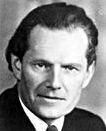|
|
 |
 |
|
Hans Calmeyer Righteous Gentile 1903-1972
“Dutch Schindler”
Lawyer for Life
|
|
|
 |
 |
|
WHY SAVE LIVES ?
|
|
|
 |
 |
|
Righteousness (also called rectitude) is an important theological concept in Judaism and Christianity. It is an attribute that implies that a person's actions are justified, and can have the connotation that the person has been "judged" or "reckoned" as leading a life that is pleasing to God. Righteousness is also used as an attribute for God. Psalm 5:12 speaks of one being shielded by God and receiving favor because of righteousness.
Read more: http://www.jewishencyclopedia.com/view.jsp?artid=294&letter=R#ixzz0osu8RMbs
Righteous starts with the Righteousness of God, which can be transferred to Man in proper belief and obedience and action.
From Wikipedia: Righteousness is one of the chief attributes of God. Its chief meaning concerns ethical conduct. (For example, Leviticus 19:36; Deuteronomy 25:1; Psalm 1:6; Proverbs 8:20) It is used in a legal sense; while the guilty are judged, the guiltless are deemed righteous. God's faithfulness to His covenant is also a large part of His righteousness. (Nehemiah 9:7-8). Righteousness also relates to God's role as saviour; God is a "righteous saviour"; (Isaiah 61) and a deliverer. (Isaiah 46:12-13) The righteous are those who trust that they will be vindicated by the Lord God. (Psalm 37:12-13).
Hebrew Definition of Righteousness
Righteousness:
- The Hebrew word for righteousness is tseh'-dek, tzedek, Gesenius's Strong's Concordance:6664—righteous, integrity, equity, justice, straightness. The root of tseh'-dek is tsaw-dak', Gesenius's Strong:6663—upright, just, straight, innocent, true, sincere. It is best understood as the product of upright, moral action in accordance with some form of divine plan.
- In the Book of Job the title character is introduced to us as a person who is "perfect" in righteousness. This does not mean that he is sinless."Perfect" in this sense means that his righteousness permeates every relationship of his life as his working principle. After all, righteousness is a matter of relationships, with God, with things, and with other people. The biblical definition of righteousness involves the inherent quality of God. God is right because He is righteous, therefore God can only act righteously. In one instance the word means being right; in another it is used to mean doing right; in still another case it means putting right. Job qualifies as a righteous person on each of these counts, so much so that he is commended by God as "wholly righteous" or, translated into our terms, "perfect."
Righteousness as it is understood in the Old Testament is a thoroughly Hebraic concept at variance with the common understanding of the term. The failure to comprehend its meaning is perhaps the most responsible for the view of the Old Testament religion as legalistic and as far removed from the graciousness of the New Testament. See also supersessionism, Biblical law in Christianity, and Christian-Jewish reconciliation.
|
|
 |
 |
 |
 |
|
Rom 3:10As it is written: "There is none righteous, no, not one;
 Rom 3:11There is none who understands; There is none who seeks after God. Rom 3:11There is none who understands; There is none who seeks after God.
 Rom 3:12They have all turned aside; They have together become unprofitable; There is none who does good, no, not one." Rom 3:12They have all turned aside; They have together become unprofitable; There is none who does good, no, not one."
Rom 3:13"Their throat is an open tomb; With their tongues they have practiced deceit"; "The poison of asps is under their lips";
 Rom 3:14"Whose mouth is full of cursing and bitterness." Rom 3:14"Whose mouth is full of cursing and bitterness."
 Rom 3:15"Their feet are swift to shed blood; Rom 3:15"Their feet are swift to shed blood;
 Rom 3:16Destruction and misery are in their ways; Rom 3:16Destruction and misery are in their ways;
 Rom 3:17And the way of peace they have not known." Rom 3:17And the way of peace they have not known."
 Rom 3:18"There is no fear of God before their eyes." Rom 3:18"There is no fear of God before their eyes."
Thus the New Testament appears to question who can be righteous given sin, and would consider at a rare event indeed?
|
|
|
Righteousness in the New Testament
The New Testament continues the Hebrew Bible's tradition of the ethical (1ᅠThessalonians 2:10) and legal (1ᅠCorinthians 4:4) aspects of righteousness, but adds the element that Jesus embodies righteousness, (Acts 3:14). According to the New Testament, Jesus came to the world to address the needs, not of "the righteous", but of "sinners," (Mark 2:17). Righteousness, like the Kingdom of Heaven, is God's gift through grace, (Matthew 5:6, Matthew 6:33).
Paul of Tarsus speaks of two ways, at least in theory, to achieve righteousness: through the Torah, the law of Moses; and through faith in the atonement made possible through the death and resurrection of Jesus Christ, (Romans 10:3-13). He repeatedly emphasizes that faith is the only effective way. For example, just a few verses earlier, he says the Jews did not attain the law of righteousness, because they sought it not by faith, but by works (Romans 9:30-33). The New Testament speaks of a salvation founded on God's righteousness, as exemplified throughout the history of salvation narrated in the Old Testament, (Romans 9-11).
The apostle James speaks of the relationship between works of righteousness and faith (James 2:14-26), saying that "faith without works is dead." Righteous acts according to James include works of charity (James 2:15-16) as well as avoiding sins against the law of Moses (James 2:11-12).
See also the discussion at Sola fide.
Saint Peter describes Lot as a righteous man in 2ᅠPeter 2:7-8.
|
|
|
 |
 |
|
Yad Vashem’s List: German “Righteous Gentiles”
(as per Wikipedia Nov. 2009)
|
|
 |
 |
|
Righteous Islam contrasted to Western Righteousness: ..... not so rare ?
It may be interesting to consider how “special” the note of righteousness is in the western world, in the Judeo-Christian basis of sinful nature that needs to be overcome. Here, there is recognition of the standout individual, thus the designation of “Righteous Gentile” is deemed something of a surprise, in that it is rare to have a righteous person among the nations.
In contrast, all Muslims are literally commanded to be righteous throughout, there is technically nothing nearly as noteworthy about righteousness, because it is expected to be universal. A true Muslim is commanded to remain firm upon the religion as Allaah Says, addressing Prophet Muhammad :
{So remain on a right course as you have been commanded, [you] and those who have turned back with you [to Allaah], and do not transgress. Indeed, He is Seeing of what you do}[Quran 11:112].
|
|
 |
 |
|
Yad Vashem: Gallery of Righteous Gentiles:
|
 |
 |
|
There is also an interesting link to Hindu concepts of Righteousness, summarized as Dharma (see Hindus)
|
|

